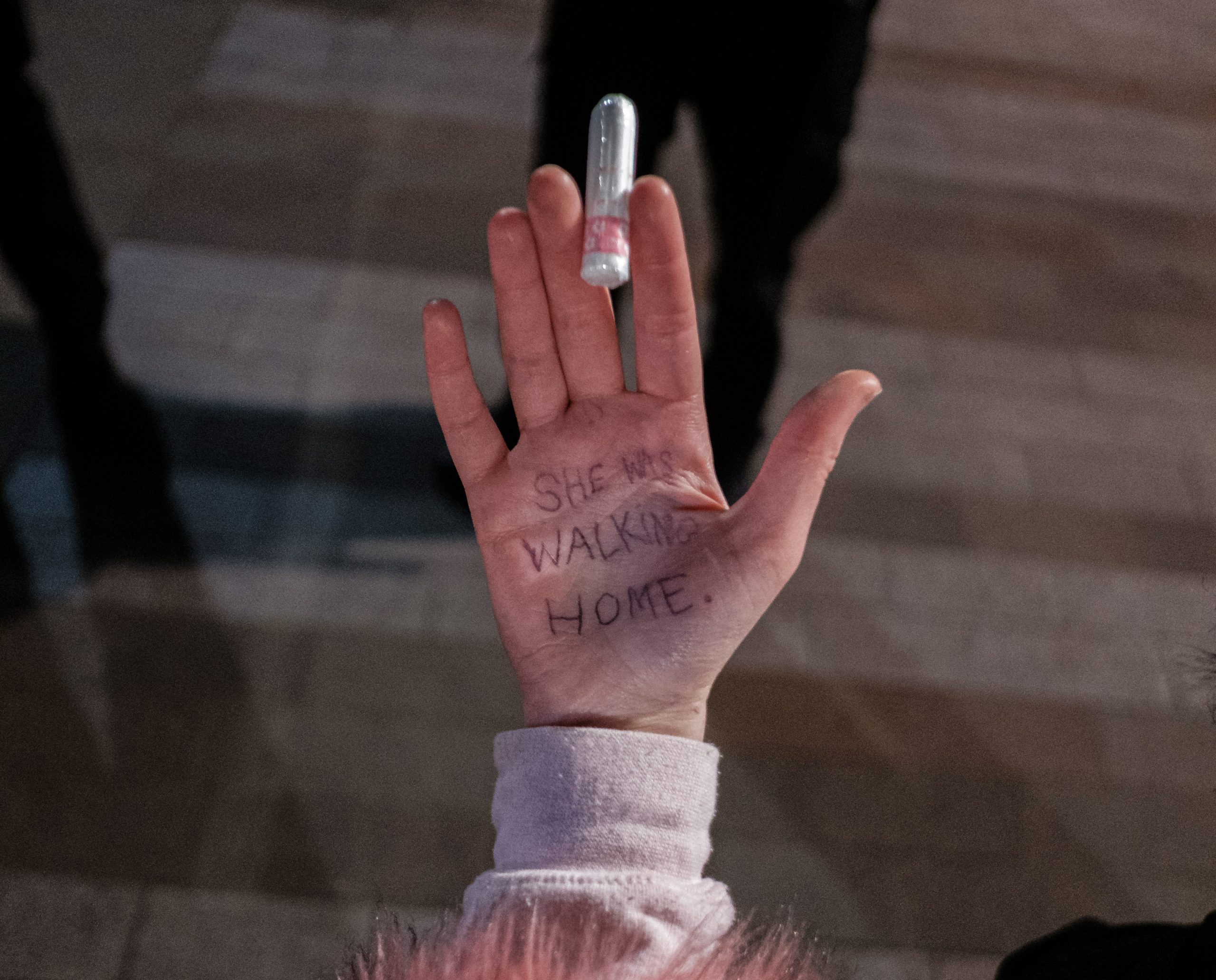[vc_row][vc_column][vc_single_image image=”116514″ img_size=”full” add_caption=”yes”][vc_column_text]An author of a government report into the handling of public protests has expressed her serious concerns about the independence and impartiality of the police watchdog. The report from Her Majesty’s Inspectorate of Constabulary looked at policing in the wake of the Black Lives Matter and Extinction Rebellion protests, was published on 11 March 2021 and backed Home Office proposals for tightening up the law. The Police, Crime, Sentencing and Courts Bill which followed sparked protests across the country.
Alice O’Keeffe, who worked as an associate editor at the HMIC, feared the conclusions may have contributed to the crackdown on the vigil for Sarah Everard on Clapham Common in south London. The 33-year-old’s killing provoked a national outcry in the UK about violence against women. Ms O’Keeffe was removed from the team tasked by Home Secretary Priti Patel to report on the policing of the vigil itself after she expressed her view that the “handling of the vigil was completely unacceptable and disproportionate.”
In its report, the HMIC concluded the police acted appropriately in handcuffing and arresting women protestors at the vigil, although it recognised coverage in the media had been a public relations disaster.
In a letter to HMIC head Sir Tom Winsor, seen by Index on Censorship, the civil servant raised her “serious and urgent concerns about breaches of the civil service code” during the earlier inspection into public protests. She raised questions about how the inspection team could be impartial when she was the only member who was not from a policing background. The letter makes a number of serious claims about the impartiality of the inspectorate:
- The civil servant was the only person on the team from a non-policing background, apart from two human rights lawyers who sat in on some discussions.
- A serving Chief Inspector from the Metropolitan Police sat on the team during the fieldwork evaluation even though this was the force originally responsible for demanding the new powers.
- There were only two women on the team of 12 (although a further woman joined later to work on case studies).
- Although a significant part of the inspection concerned the policing of Black Lives Matter protests, only one member of the team of 12 was from an ethnic minority background.
- There was no one with a specialism in equality and race on the team.
- The threat from extreme-right wing groups was not considered.
- The team demonstrated consistent bias against peaceful protest groups, drawing comparisons between them and the IRA.
- The report misrepresented public opinion on the policing of protest.
The civil servant claimed the inspectorate decided to back the government’s proposals before fieldwork has been completed. She quoted correspondence between the inspectorate and the Home Secretary from late 2020 which said the government’s proposals “would improve police effectiveness (without eroding the right to protest) and would be compatible with human rights laws. Moreover, measured legislative reform in these respects would send a clear message to protestors and police forces alike about the limits of the right to protest”.
In her letter to Sir Tom Winsor, the civil servant claimed: “The purpose of the report was not to collect evidence and then make a decision, but rather to collect evidence to support the decision that has already been made.”
Ms O’Keeffe has worked as journalist at the Guardian, the Observer and the New Statesman. She previously worked at the Equalities and Human Rights Commission.
In a statement the inspectorate confirmed it was evaluating Ms O’Keeffe’s observations. However, it said that as an editor “she was not privy to all the work which assessed and weighed the evidence in the inspection”. The final judgment was made by one of the inspectors of constabulary, it said, and approved by the board of the inspectorate.
The statement went on to explain that a thorough legal analysis carried out by external counsel had been completed by the time the letter referred to by Ms O’Keeffe was sent to the Home Secretary. No final judgement was made until fieldwork into the policing of protests had been concluded and the Home Secretary was informed the initial judgement was provisional.
HMIC said its inspection teams always include seconded police officers and that officers from the Metropolitan Police were often used. It denied peaceful protestors were equated to the IRA.
The statement concluded: “The Clapham inspection was entirely objective as is apparent from the report just published. Ms O’Keeffe was not put on the Clapham report because, by her own acknowledgement, she had already made up her mind what the conclusions should be before any evidence had been obtained.
“The independence of the inspectorate has always been conspicuous. It is led by Her Majesty’s Chief Inspector of Constabulary whose reputation for independence goes back many years.”
Read extracts from the letter and why Index defends the right to protest even during a pandemic.[/vc_column_text][/vc_column][/vc_row]






